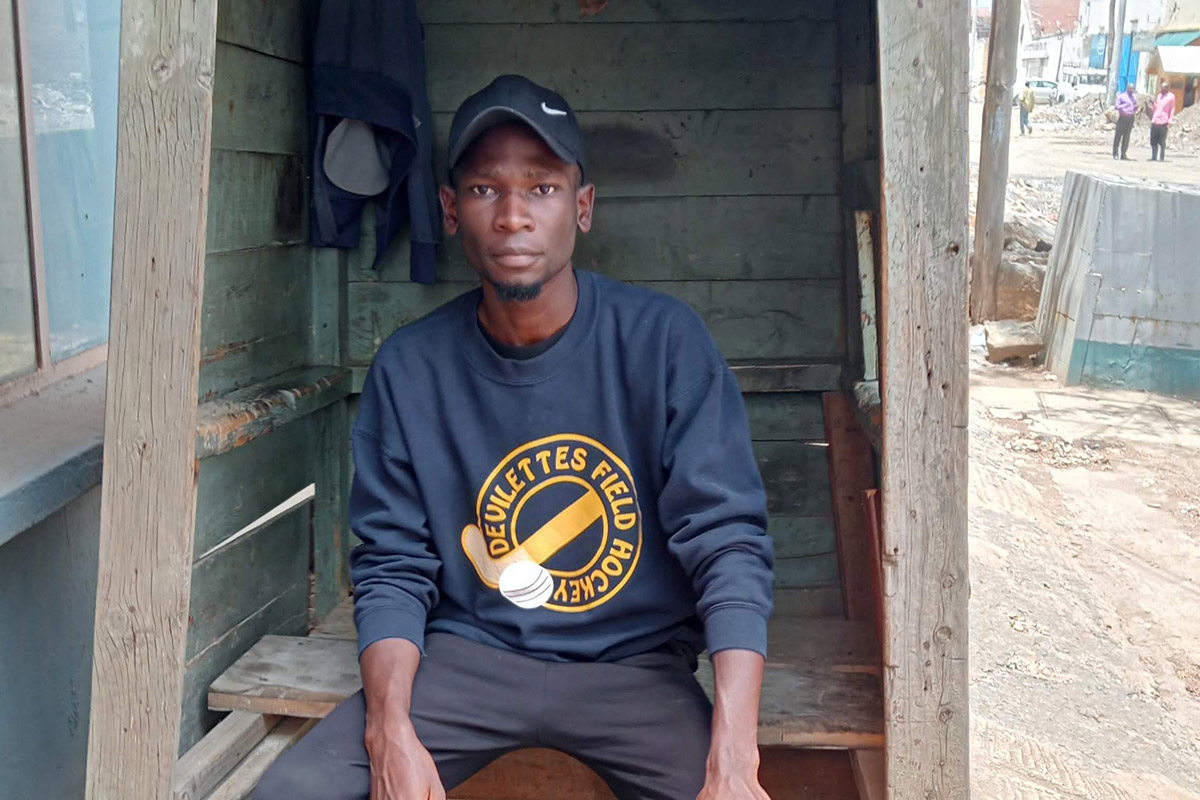“Why FGM may be difficult to end in Nigeria”
January 31 Despite being outlawed in May 2015, the advocacy to end female genital cutting in Nigeria may take longer than anticipated, writes Sola Abe, 26, a Commonwealth Correspondent from Lagos in Nigeria.
Despite being outlawed in May 2015, the advocacy to end female genital cutting in Nigeria may take longer than anticipated, writes Sola Abe, 26, a Commonwealth Correspondent from Lagos in Nigeria.
Female Genital Cutting in Nigeria is an age-long tradition that is rooted in deep cultural beliefs. It is still being done in many societies, albeit secretly.
A main reason given for FGC is the traditional belief that it tames promiscuity in women and help to keep their virginity. Some believe that FGC prevents the death of a child during delivery, because according to narratives, if the child’s head touches the clitoris, s/he will die.
A 2016 report by 28 Too Many, a charity dedicated to ending FGC, estimated the prevalence of FGC among Nigerian women aged 15 to 49 at 24.8 per cent, with the south-west zone accounting for more than half those cases.
My recent visit to Ekiti and Oyo, two South West states with 72.3 per cent a 65.6 prevalence rate of FGC respectively, revealed that the law may not be enough to abolish the practice.
Despite being medically proven to cause chronic pain, infections, primary infertility and birth complications, the act still thrives in this culture, making it difficult to eradicate. In both states, FGC is carried out when the girl-child is still young, because of the trauma that comes with the cutting.
In Ekiti, locals were unwilling to talk about FGC because of its sensitivity and illegal status. Many said they had stopped the practice since the government outlawed it, but their countenance belied their claims.
The divergent voices and opinions of the traditional leaders of Ikere, Ido and Ijero, in Ekiti also revealed that the battle against FGC may be a long, hard one in parts of state.
Oba Samuel Adejimi Adu-Alagado, the king of Ikere-Ekiti, a local government area, gave his support for eradication of the practice, especially because of the vulnerability of children to different kinds of diseases.
However, Oba Ayorinde Iloro-Faboro, the king of Ido-Ekiti, another area of the state, does not think the government needs to interfere with a private matter.
According to him, FGC is done when the baby is still a child and many women are oblivious to it because it does not leave a scar. While explaining that it could only be tagged wrong if it causes some anatomical issue like vaginal tear, the king added that some women insisted on doing it.
Oba Iloro-Faboro also said he was not interested in urging his people to stop circumcising their girl-child. “It is not my business. It’s the least of my problems; it doesn’t concern me,” he said.
But Oba Joseph Adebayo Adewole, the king of Ijero-Ekiti stated that the people needed to be educated on the negative effects of FGC. He supports eradication of the practice, saying that constant education together with the statistics of the negative effect of FGC would facilitate acceptance of the message.
He, however, added that people are still inclined to their own beliefs no matter what is done.
What the Ijero-Ekiti traditional leader said was reflected by the attitude of some of market women in Ajegunle, Oyo State.
“Haha…Why won’t I cut my child?” was the common statement made with a look that showed their disbelief when asked if their girl-children were cut.
Many women, who confessed to being cut by their parents, said they also cut their children. Surprisingly, some who believe that FGC has nothing to do with promiscuity still cut their children.
Few women said they were not cut and did not cut their children. Still, but for the influence of a higher authority such as a spouse or in-law, some women would not have cut their daughters.
Also, findings showed that the practice may have been medicalised, as nurses who carry out the procedure do it secretly. They are often natives who believe strongly in the culture.
Oftentimes, girls are cut in unsanitary conditions, with unsterilised equipment and no anesthesia. A native explained that the shell of a snail is also used to cut the clitoris, while the snail slime is administered to treat the wound till it heals.
For some, the campaign against FGC is an affront to their culture. They claim that civilisation ‘destroyed’ everything, and it would take a traditional ruler or their state governor to convince them to change. Others, with a little resistance, accepted that there was indeed nothing beneficial about FGM, while some were just confused and didn’t know what to believe.
The Programme and Media Manager of Onelife Initiative for Human Development, Sola Fagorusi explained that the child rights law in Oyo State faced challenges in implementation, and the government was not assisting.
“For government around here, it’s always when there is an emergency,” he said.
His NGO is trying to make sure that the demand for FGM is put to an end by educating as many people as possible.
A 2012 report by Annals of Medical & Health Sciences Research revealed that Nigeria resolved, with other members of the 47th World Health Assembly, to eliminate FGC in 1994. But despite a law banning the practice, it still thrives.
Recently, Facebook user Alhaji Adebayo posted graphic pictures showing children being circumcised, along with text offering free female circumcision in Ilorin, Kwara, a state in the north central region of Nigeria.
After much criticism, he took down the post. The next day, he informed his followers on Facebook that he was visited by campaigners from anti-FGM groups.
“They made me realise the disadvantages and implication of doing mutilation for (the) female child. I urge every parent to put an end to the female circumcision…because of (the) problems that might come out from there later in the future,” his post read.
These examples show that FGC is a lingering culture that has to be combated with appropriate measures.
Photo credit: marcoverch Papier mit einer Schere schneiden via photopin (license)
…………………………………………………………………………………………………………………
About me: I work with Woman.ng, an online magazine for Nigerian women. My vision is to create media content that will inspire, educate and renew the mind of people. I am passionate about advocating for and empowering abused women.
I hope to be known as a woman that stands against gender based violence. I love to look good, have fun and make new friends. Above all, I love God and pray to become all he wants me to be.
…………………………………………………………………………………………………………………
Opinions expressed in this article are those of the author and do not necessarily represent the views of the Commonwealth Youth Programme. Articles are published in a spirit of dialogue, respect and understanding. If you disagree, why not submit a response?
To learn more about becoming a Commonwealth Correspondent please visit: http://www.yourcommonwealth.org/submit-articles/
…………………………………………………………………………………………………………………






